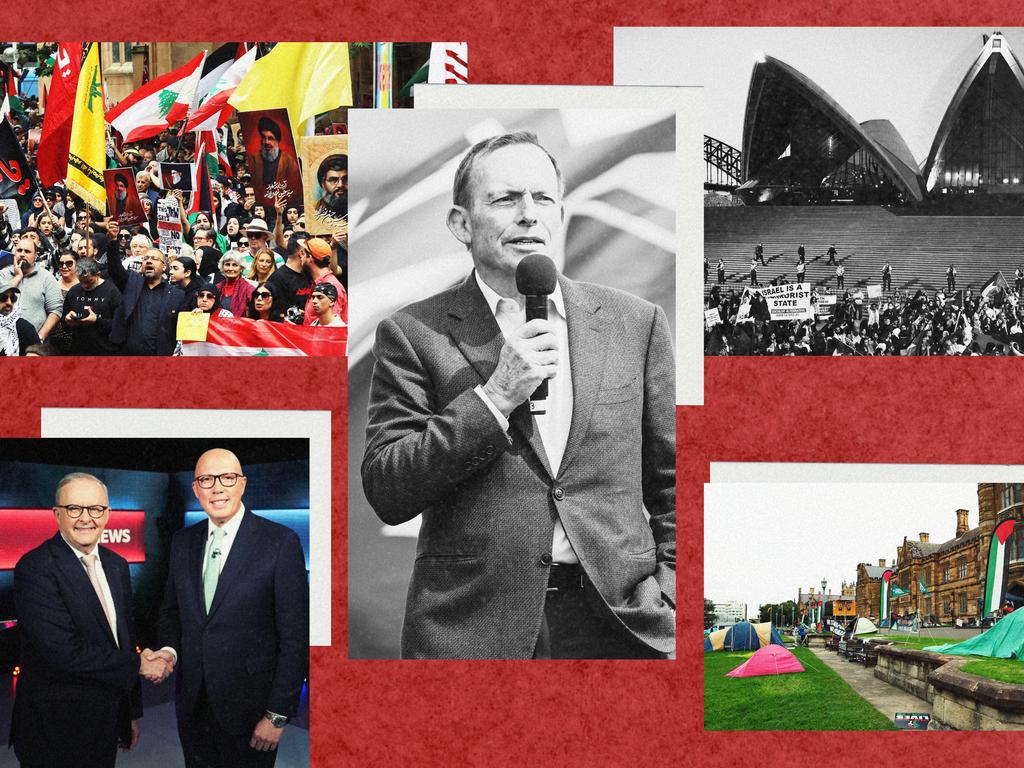Don’t blame our migrants for lack of social cohesion

This week marks the 50th anniversary of the Special Broadcasting Service, SBS. Its significance struck me at a time when the public is bombarded with news of political tension within Australia’s ethnicities, provoking demands to change our immigration policy, specifically multiculturalism.
The very idea of multiculturalism has been questioned. There have been some comments, generally from the right haute commentariat, demanding we abandon multiculturalism and with it our religiously and culturally blind immigration policy. Many of these people will not accept that Australia has changed. It is a multiethnic, culturally and religiously plural society.
The assumption that the post-war government’s policy of assimilation was the magic fix that turned Australia into a seamless model of cultural harmony is really nostalgic, wishful thinking. It wasn’t the policy that turned us into a successful multiethnic country. People do not change ingrained assumptions and prejudices because of government policies. Australia changed because of the blood, sweat and tears of immigrants themselves. Assimilation means blending in. That is the ideal immigrant experience, which usually happens anyway, as it did in my extended family. The bad aspect of assimilation was the enforced aping of the peripheral aspects of a culture that you had little in common with, to speak “Australian”, look “Australian”, behave “Australian” even change your name to be “Australian’’.

Essentially, it meant imitating the dominant British culture. This overwhelming conformism was quite punitive, especially if you and your culture were really different from the white Anglo-Celtic majority. Luckily, sheer numbers of immigrants, and their diversity, means this has gone. Multiculturalism is actually a result of this diversity. It did more for harmonious integration than assimilation.
However, there is still a residual feeling that some immigrants are the cause of cultural fragmentation. The cry now is they should accept “Australian values”, which is pretty vague, because it simply meant keeping your head down, working hard, a house in the suburbs, doing the best for your family. How many of our present immigrants do not ascribe to that?
Many Australians, both immigrants and native-born, are puzzled by the fragmenting of laid-back, suburban Australia. Commentary has zeroed in on outbursts from radical Islamic preachers and anti-Semitism. But perhaps this is a much deeper problem. Perhaps more worrying is the violent criminality in the cities and towns, especially among the young. Much of this is rightly blamed on social media. Much is the result of disastrous education policies that have left children without any hard knowledge or guiding principles, except a lot of new commandments from the human rights apparatus. And rather than religion being the cause of this fragmentation, much of it has to do with the abandonment of religion. The fragmentation we see is a moral fragmentation of the strains of our plural society.
It is complex. For example, if there was one thing all Australians agreed on it was the centrality of the family. But lately a number of moral issues propelled by ideology have come to the fore that illustrate that the family is not the centre of Australian values. Freedoms we take for granted, such as freedom of religion, are being whittled away. Hate speech is the new crime. A lot of sexual and life issues are just divisive attempts to punish Christians, particularly Catholics. So, the fragmentation we are seeing is not just over ethnicity. It is a moral fragmentation of the various strains of our plural society.

In a society of competing moral values, Peter Kurti from the Centre for Independent Studies argues Australia must move beyond cultural consensus and embrace a civic framework for managing deep moral and cultural disagreement. In a new monograph, The Ties That Bind: reconciling value pluralism and national identity, he claims our future as a cohesive democracy depends not on suppressing difference but on managing it through robust civic institutions and shared democratic practices. “In a society as culturally diverse as Australia, it’s no longer realistic to expect full agreement on values,” Kurti writes. “But that doesn’t mean we can’t build unity. It means we must ground our national identity in civic principles – the rule of law, equal rights, democratic accountability – not in shared moral or cultural beliefs.”
Drawing on the political theory of value pluralism, particularly the work of Isaiah Berlin and John Gray, Kurti shows how liberal democracies can remain stable even amid deep moral disagreement, and practical tensions; from religious exemptions for schools and hospitals to vaccination refusal. He argues these must be negotiated through public institutions, not imposed by moral consensus, and asks if we have the tools to maintain liberal democracy. Kurti warns vague appeals to values have to be clear, and recommends reforming civic education to prepare citizens for principled disagreement. Citizenship needs to reflect democratic structures, not cultural norms. Civic education is too vague and couched in nostalgic tropes such as “mateship”. We need to teach the Constitution, the values of citizenship and restraint in conflict. Kurti wants early-stage conflict resolution mechanisms, intercultural dialogue and research into social cohesion. These are practical measures to encourage civic cohesion. Wringing one’s hands over social fragmentation, blaming immigrants and decrying multicultural ethnicity is futile in 21st-century Australia





